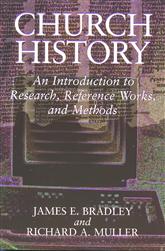 The Junius Institute is pleased to announce its ability to digitize rare books. There are many far-sighted goals for this local digitization initiative. This initiative advances scholarship and critical study of the sources through the public use of early modern works via high quality digital images. Rare book digitization is a key strategic decision for research institutions, archives, and libraries as they grapple with preservation of rare sources and presentation of the same. Digitization allows both. Digitization also transforms a catalog database from a record to a venue. It is an opportunity to present rare book holdings seamlessly in the local library catalog, increasing access and deepening usability, even allowing institutions the ability to efficiently track usage and interest in rare sources. Thirdly, our ability to digitize rare books is a local initiative with global implications for students and scholars everywhere. Given the rise of tablet and mobile computing in developed and developing countries, the presentation of primary sources in a form that is easily accessible for a wide array of devices can form the basis of global institutional collaboration, expediting the goal of fostering a true exchange of learning. These points are not wishful thinking, we have already received requests and suggestions regarding the Post-Reformation Digital Library from universities, institutions, and academies around the world regarding the particular curricular needs of their students and faculty.
The Junius Institute is pleased to announce its ability to digitize rare books. There are many far-sighted goals for this local digitization initiative. This initiative advances scholarship and critical study of the sources through the public use of early modern works via high quality digital images. Rare book digitization is a key strategic decision for research institutions, archives, and libraries as they grapple with preservation of rare sources and presentation of the same. Digitization allows both. Digitization also transforms a catalog database from a record to a venue. It is an opportunity to present rare book holdings seamlessly in the local library catalog, increasing access and deepening usability, even allowing institutions the ability to efficiently track usage and interest in rare sources. Thirdly, our ability to digitize rare books is a local initiative with global implications for students and scholars everywhere. Given the rise of tablet and mobile computing in developed and developing countries, the presentation of primary sources in a form that is easily accessible for a wide array of devices can form the basis of global institutional collaboration, expediting the goal of fostering a true exchange of learning. These points are not wishful thinking, we have already received requests and suggestions regarding the Post-Reformation Digital Library from universities, institutions, and academies around the world regarding the particular curricular needs of their students and faculty.
There is also the reality that there are treasures of early modern theology and philosophy tucked away in smaller institutions and private collections. A digitization initiative can be scaled to other institutions, archives, and private collections as a way to build a consortium of truly invaluable sources. One example that we are proud to present is a piece by Isaac Junius simply entitled the Antapologia, or thoughts on the 16 heads of the Remonstrants. Through the generosity of a private owner, we are able to make it available to you. According to Worldcat this piece is housed primarily in Europe and, as far as we are aware, is unavailable in digital form for free. We encourage you to take a moment and browse our version of it here. And yes you may download it in .pdf form.
At the core of the digitization project is an automated digital photography device developed over the past 24 months by an interdisciplinary team I had the privilege of spearheading (several specialists in engineering design, robotics, automation, and computer programming). In particular this device expedites the digitization of rare books while respecting the fragility of their age in a new and innovative way. You can see some of its initial results here. The presentation format is another testimony to David Sytsma’s programming wizardry and is the Junius Institute’s adaptation of a publicly available book viewer. Together we hope we have created a process and result that meets the needs of teachers, scholars, and students in a relatively cost-effective way.
Unprecedented access to primary sources through print media once changed the face of education and shaped all of society in early modern Europe. Now we live in an age where unprecedented access to primary sources through digital media is changing the face of education and all of society in ways only dreamed of a decade ago. We invite you to consider a few things. We are looking for individual and institutional partners who are interested in advancing initiatives of this nature. You might think that is way beyond your means or your contact list, but in my experience scholars and students are a creative and innovative bunch of people. You can be a part of this initiative in a variety of ways: (1) You can sign-up to receive our updates and e-mails. (2) You could fully or partially sponsor the digitization of a particular rare book. (3) You can be the link to put us in contact with individuals or institutions that have a similar vision and desire to advance scholarship through digital means.
We look forward to providing you updates on initiatives of this sort as well as displaying the results in the days ahead.




